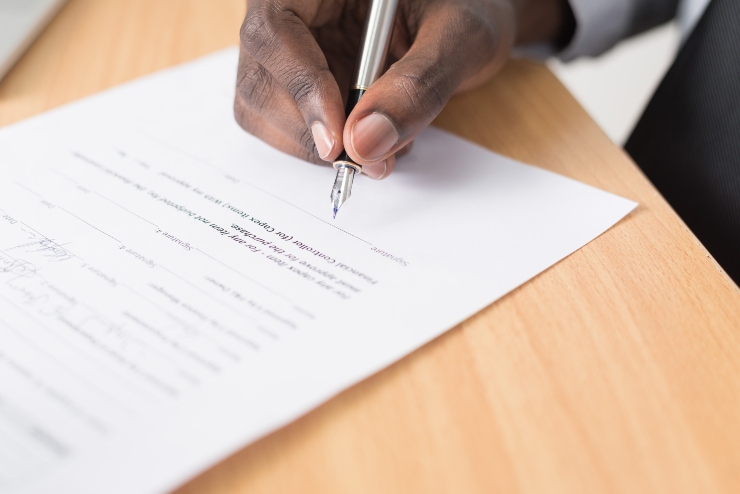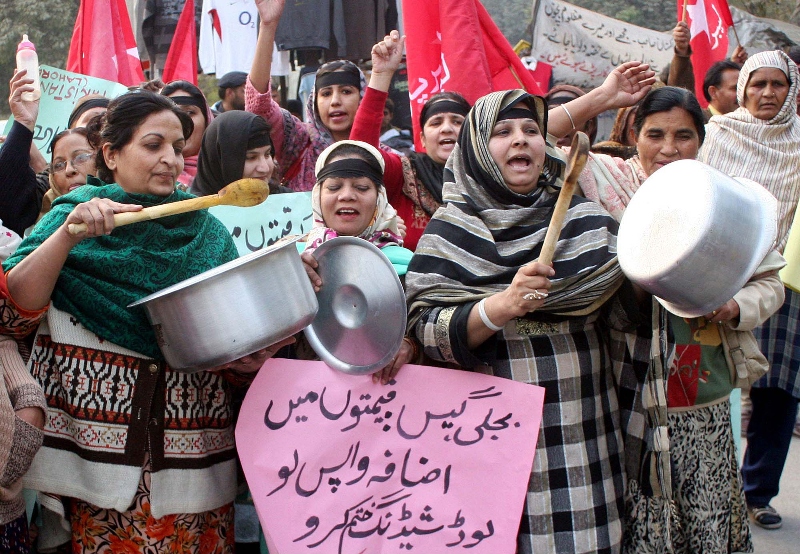
Two developments are seen as evidence of the rise of populist opposition to the established liberal order: Brexit and Donald Trump. While similar in many respects, they have very different views on the World Trade Organisation. Brexiteers see the WTO as an acceptable – if not preferable – alternative to an agreement with the EU, and presumably a suitable framework for the UK as a global trader. President Trump sees WTO rules as a constraint on US trade policy, too weak or no longer compatible with US national interests. So are WTO rules the key to prosperity – or not fit for purpose?
The purpose of WTO rules, as they have evolved from the establishment of the General Agreement on Tariffs and Trade (GATT) in 1948 to the World Trade Organisation in 1995, has been to:
a) provide a stable framework for increased trade and prosperity;
b) promote a broad balance of benefits across all participating economies;
c) ensure non-discrimination (in the shape of the most favoured nation provision in Article I of the GATT and national treatment for like products in Art III;
d) to limit distortions due to discretionary intervention by states; and finally
e) to provide for an impartial resolution of disputes.
Above all, the WTO is a predominantly rules-based trading system based on consensus and cooperation, as opposed to a power-based system in which the unilateral use of market power alone determines outcomes.
Today the reality is that the WTO does not rule – and the whole multilateral trading system is in a state of crisis, for the following reasons.
WTO rules are sadly outdated. Most of the existing WTO rules date from 1995 when the organisation was established. This was before global value chains became a feature of international trade, before the extensive application of the internet to trade and investment, before China emerged as a trading power to match the US and the EU and before the need to reconcile trade liberalisation with other policy objectives, such as tackling climate change, was widely recognised and accepted. Efforts to update the multilateral rules in the shape of the so-called Doha Development Agenda negotiations launched in 2001 have largely failed. This is the first time such a multilateral round of trade negotiations has failed since 1948.
Today PTA (Preferential Trade Agreement) rules shape the global economy more than WTO rules. As the WTO has failed to keep pace with the degree of integration in the world economy that has occurred in the past quarter of a century, governments have negotiated PTAs to help fill the vacuum. This effort to negotiate PTAs has then undermined the value of the WTO for many countries. PTAs, at least between more developed economies such as the UK and the US, enable a wider range of trade costs and barriers to be addressed quicker than the WTO with its 164 members. The results have been that tariffs within the PTAs are generally fully liberalised, except for a few sensitive sectors that account of 2-3 per cent of all tariff lines. The commitments on services are much more extensive than under the General Agreement on Trade in Services (GATS) that forms part of the WTO rules.
PTAs also include investment, trade facilitation (measures to reduce the costs of customs and border controls) and importantly address differences in regulatory norms or standards, which with the removal of tariffs now constitute the most important cost of doing business internationally. PTAs have also begun to address the sustainability of trade and investment and how trade rules need to be modernised and rebalanced to match wider social and environmental policy preferences.
The WTO is now in crisis. After languishing for some years and being overtaken by PTAs, the WTO now finds itself in probably the most profound crisis since 1948. This has been precipitated by current US trade policy. The Trump administration has reverted to a more power-based approach to trade. This takes the form of threatening and/or actually closing the US market as a means of forcing its trading partners to make concessions. These actions are justified by the use of US national trade legislation, such as Section 301 of the 1974 Trade Act, or by the spurious claim that imports are threatening US national security, under Section 232 of the US Trade Expansion Act of 1962.
With this unilateral action the US is effectively bypassing WTO rules. In claiming national security as grounds for increasing tariffs it threatens the whole trading system. If the US can do this other countries will feel they can also have a free hand to take protectionist measures. But the main point here is that the US no longer sees the WTO as serving US interests, because it is seen as favouring others more than the US and thus failing to ensure a broad balance of benefits.
As the current WTO rules constrain the US from discriminating against countries that have a trade surplus with the US, the Trump administration has resorted to any measure that enables the use of discretion, hence the use of national security to justify tariffs. The Trump administration, as did the previous Obama administration, is also blocking the appointment of members of the Appellate Body of the WTO on a number of grounds, but primarily because the US is no longer willing to accept rulings in Geneva limiting its sovereignty and thus its ability to act. Blocking appointments to the Appellate Body of the WTO will soon render the dispute settlement function of the WTO ineffective.
The other more slow burning challenge to WTO rules is China’s support for its domestic industries. Many countries have provided support for industry, especially in the early stages of development and industrialisation. But none have done so on the scale of current Chinese policy. The existing WTO rules preventing major distortions from national subsidies, the operation of state-owned enterprises or the (absence) of pro-competition policies are not capable to dealing with the scale of Chinese support. China argues it remains a key supporter of the WTO rules-based, multilateral trading system, but in this it appears to mean the current WTO rules, which, as noted above, date from 1995 and do not seriously constrain China’s strategic trade policy. The US action against China outside of the WTO rules is of course a reflection of the weakness of the WTO rules in this respect. But by acting unilaterally rather than seeking a more cooperative solution the US is threatening the fabric of the rules-based trading system.
What can we conclude from the above? Rather than offering an opportunity for Britain to pursue a new role as a global trader, the WTO looks like a rather poor alternative to the negotiation of agreements with major markets. In this the priorities run: first the EU; then all the countries to which the UK has preferential access under the existing EU PTAs; and then perhaps – in the rather distant future, given the difficulty in negotiating such agreements – the US, India etc. The central role of PTAs means that UK exporters and investors will be at a clear disadvantage until the UK government can renegotiate agreements with countries with which it had preferential agreements as a member of the EU. None of this is possible until the UK has settled its trading relationship with the EU.
Beyond this, the UK’s long-term interests must be in preserving an open rules-based trading system. Only the ‘big beasts’ of the US and China can defend their national interests in a power-based order. In pursuing this aim the UK’s interests – as a leading member of a group of WTO members seeking to defend multilateralism – will be closely aligned with those of the EU, as well as other developed and developing economies.
♣♣♣
Notes:
- This blog post appeared originally on LSE Brexit.
- The post gives the views of its authors, not the position of LSE Business Review or the London School of Economics.
- Featured image by World Trade Organization, under a CC-BY-SA-2.0 licence
- Before commenting, please read our Comment Policy
 Stephen Woolcock is associate professor at LSE’s department of international relations (international trade policy unit). His research interests are international trade and investment policy; the World Trade Organisation; regulatory issues in international trade; European trade policy; regional integration/trade agreements; and the coverage of international rules/regimes governing trade and investment.
Stephen Woolcock is associate professor at LSE’s department of international relations (international trade policy unit). His research interests are international trade and investment policy; the World Trade Organisation; regulatory issues in international trade; European trade policy; regional integration/trade agreements; and the coverage of international rules/regimes governing trade and investment.






The WTO does not reform and part of that reform package is the utilisation of tariffs to enable countries to create national sustainability, national sufficiency and national resilience.
Not in a power play way but with the specific aim of creating global sustainability, global sufficiency and global resilience.
My perspective is of a global system of national/regional sufficiency systems in order to be prepared for any disruptions that might be caused by global debt, global warming or global ecological degradation and biodiversity loss.
Supranationalism and neoliberalism, which the rules based liberal system facilitates is in general not a resilient system in that a crisis or shock felt in one part of the system is quickly felt in another, leading to multiple collapses in a wide variety of national subsystems.
The way to build up global resilience is through a cellular system of relatively contained national and regional sufficiency economies with an emphasis on import dependancies being used to create global equity and so the development of basic infrastructure for the poorer regions in the world.
In this respect, the WTO becomes more integrated with the UN as does the IMF and World Bank. Possibly the reason why Doha failed is because the planet needs to integrate economic security with political, social, cultural and ecological security. By integrating supranational and multilateral institutions, we better reflect the integrative aims of the SDGs.
This means the (neo)liberal rules based order transforms to an order that is better able to integrate national sustainability, sufficiency and resilience concerns with global sustainability, sufficiency and resilience concerns.
Most of the commentariat have little real idea about trade and how it works. This not only contributes to Brexit but also to ideas on the WTO, which they do not understand. Many seem to assume that the organisation and treaties somehow guarantee a minimum free trade level.
I have written about this myself (https://polemospaterpanton.wordpress.com/2019/03/03/why-britain-should-reject-the-wto-option-even-under-hard-brexit/). The gaping asymmetry of the unfinished process of WTO means that as it stands, WTO favours China and others against the OECD. It wasn’t supposed to be like this, but since Doha never completed, it’s just been left as it is, as the author here says, outdated.
The harsh logic of all this is that if we have a Hard Brexit, we should ironically also opt out of WTO and just start afresh.